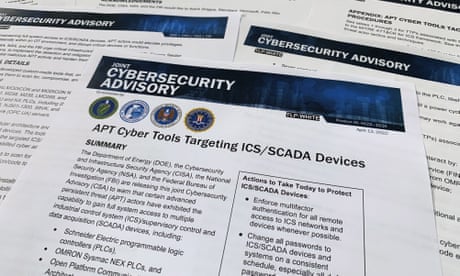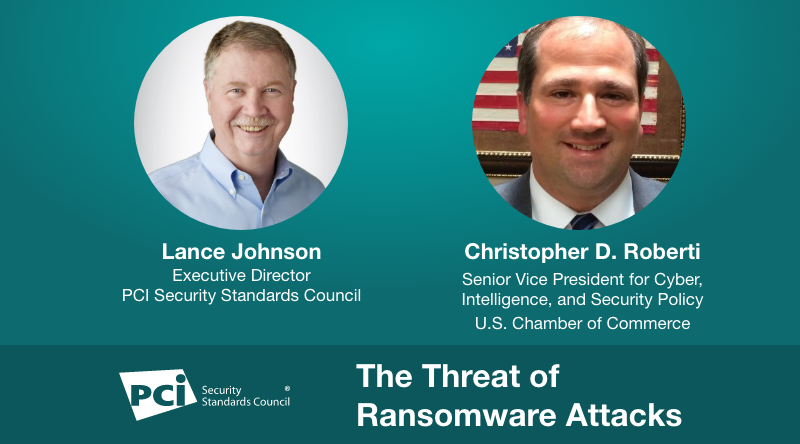Cybersecurity News
How can we support young people in harnessing technology for progress?
Young people are not passive victims of technology or helpless addicts. They are technology creators and agents with diverse backgrounds and interests.
The post How can we support young people in harnessing technology for progress? appeared first on WeLiveSecurity
Google: 2021 was a Banner Year for Exploited 0-Day Bugs
 Last year, Google Project Zero tracked a record 58 exploited-in-the-wild zero-day security holes.
Last year, Google Project Zero tracked a record 58 exploited-in-the-wild zero-day security holes.
Rethinking Cyber-Defense Strategies in the Public-Cloud Age
 Exploring what's next for public-cloud security, including top risks and how to implement better risk management.
Exploring what's next for public-cloud security, including top risks and how to implement better risk management.
Paving the Way: Inspiring Women in Payments - A Q&A featuring Rema N. Deo
After a highly respected and widely loved company director passed away, Rema Deo was promoted into his position. Stepping into his shoes as head of a regional technology area was a challenge, made even more difficult when her peers kept comparing her with the prior chief and expected her to fail. In this edition of our blog, Rema describes how she blazed her own trail, gained respect from her peers in her own right, and would go on to become an owner of her company.
‘CatalanGate’ Spyware Infections Tied to NSO Group
 Citizen Lab uncovers multi-year campaign targeting autonomous region of Spain, called Catalonia.
Citizen Lab uncovers multi-year campaign targeting autonomous region of Spain, called Catalonia.
Protect Your Executives’ Cybersecurity Amidst Global Cyberwar
 In this time of unprecedented cyberwar, organizations must protect the personal digital lives of their executives in order to reduce the company’s risk of direct or collateral damage.
In this time of unprecedented cyberwar, organizations must protect the personal digital lives of their executives in order to reduce the company’s risk of direct or collateral damage.
Lenovo patches UEFI firmware vulnerabilities impacting millions of users
Three vulnerabilities could be exploited to deploy flash implants and circumvent secure boot.When “secure” isn’t secure at all: High‑impact UEFI vulnerabilities discovered in Lenovo consumer laptops
ESET researchers discover multiple vulnerabilities in various Lenovo laptop models that allow an attacker with admin privileges to expose the user to firmware-level malware
The post When “secure” isn’t secure at all: High‑impact UEFI vulnerabilities discovered in Lenovo consumer laptops appeared first on WeLiveSecurity
Conti’s Ransomware Toll on the Healthcare Industry
Conti -- one of the most ruthless and successful Russian ransomware groups -- publicly declared during the height of the COVID-19 pandemic that it would refrain from targeting healthcare providers. But new information confirms this pledge was always a lie, and that Conti has launched more than 200 attacks against hospitals and other healthcare facilities since first surfacing in 2018 under the name "Ryuk."Cyberattackers Put the Pedal to the Medal: Podcast
 Fortinet's Derek Manky discusses the exponential increase in the speed that attackers weaponize fresh vulnerabilities, where botnets and offensive automation fit in, and the ramifications for security teams.
Fortinet's Derek Manky discusses the exponential increase in the speed that attackers weaponize fresh vulnerabilities, where botnets and offensive automation fit in, and the ramifications for security teams.
Karakurt Ensnares Conti, Diavol Ransomware Groups in Its Web
 Connections that show the cybercriminal teams are working together signal shifts in their respective tactics and an expansion of opportunities to target victims.
Connections that show the cybercriminal teams are working together signal shifts in their respective tactics and an expansion of opportunities to target victims.
The Threat of Ransomware Attacks
Ransomware attacks continue to present a serious threat to businesses. On the blog, we cover basic questions with Christopher D. Roberti, Senior Vice President for Cyber, Intelligence, and Supply Chain Security Policy at the U.S. Chamber of Commerce and PCI SSC Executive Director Lance Johnson about this threat to businesses across the U.S. and around the world and how to better guard against this attack.
Feds: APTs Have Tools That Can Take Over Critical Infrastructure
 Threat actors have developed custom modules to compromise various ICS devices as well as Windows workstations that pose an imminent threat, particularly to energy providers.
Threat actors have developed custom modules to compromise various ICS devices as well as Windows workstations that pose an imminent threat, particularly to energy providers.
Week in security with Tony Anscombe
Ukrainian energy provider targeted by Industroyer2 – ESET helps disrupt Zloader botnets – Where do new ideas come from and how are they spread?
The post Week in security with Tony Anscombe appeared first on WeLiveSecurity
Meet ZingoStealer: the Haskers Gang's new, free malware
ZingoStealer is able to spread cryptocurrency mining malware.US federal alert warns of the discovery of malicious cyber tools

Cybersecurity officials said the evidence suggests Russia is behind the tools – configured to target North American energy concerns
Multiple US government agencies issued a joint alert Wednesday warning of the discovery of malicious cyber tools created by unnamed advanced threat actors that they said were capable of gaining “full system access” to multiple industrial control systems.
The public alert from the Energy and Homeland Security departments, the FBI and National Security Agency did not name the actors or offer details on the find. But their private sector cybersecurity partners said the evidence suggests Russia is behind the tools – and that they were configured to initially target North American energy concerns.
Continue reading...At a Glance: PCI DSS v4.0
PCI Data Security Standard (PCI DSS) is a global standard that provides a baseline of technical and operational requirements designed to protect account data. The next evolution of the standard- PCI DSS v4.0- is now available.
Home Office’s visa service apologises for email address data breach

Private contractor running service sent email to applicants containing more than 170 email addresses
The Home Office’s visa service has apologised for a data breach in which the email addresses of more than 170 people were mistakenly copied into an email circulated last week.
More than 170 email addresses were accidentally copied into a message on 7 April 2022 about the change of location for a visa appointment with the UK Visa and Citizenship Application Service. The UKVCAS is run on behalf of the Home Office by the private contractor Sopra Steria. Some of the email addresses appeared to be private Gmail accounts, while others belonged to lawyers from a variety of firms.
Continue reading...ESET takes part in global operation to disrupt Zloader botnets
ESET researchers provided technical analysis, statistical information, and known command and control server domain names and IP addresses
The post ESET takes part in global operation to disrupt Zloader botnets appeared first on WeLiveSecurity
Feds Shut Down RaidForums Hacking Marketplace
 The DoJ is charging its founder, 21-year-old Portuguese citizen Diogo Santos Coelho, on six criminal counts, including conspiracy, access device fraud and aggravated identity theft.
The DoJ is charging its founder, 21-year-old Portuguese citizen Diogo Santos Coelho, on six criminal counts, including conspiracy, access device fraud and aggravated identity theft.



